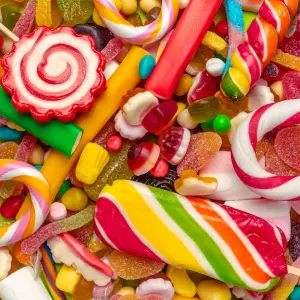Park Place Dental Group
Dentistry & Cosmetic and Restorative
Dentistry located in Arts Section, Newark, NJ
Getting a dental crown is a significant step toward restoring the strength and function of a damaged tooth. Whether you're recovering from a root canal, repairing a fractured molar, or enhancing your smile, dental crowns offer lasting benefits when properly cared for. One important component of caring for your new crown is to be mindful of what you consume, especially in the first few days after the treatment. At our trusted dentistry, we often remind patients that some everyday foods can shorten the lifespan of a crown or even cause it to come loose.
In our previous blog, we discussed the different types of crowns that are available to dental patients. In this blog, we will discuss the variety of foods that are supposed to be avoided when an individual has gotten a new dental crown.

5 Foods to Avoid After Getting a New Dental Crown
Below are five foods to avoid after getting a new dental crown, along with helpful tips to keep your restoration strong and secure.
1. Hard Candies and Ice
Grinding on hard items such as peppermints and candies, as well as chewing on ice, can cause your crown to break or chip. Dental crowns in Newark are durable but not indestructible. These hard substances create excessive pressure, especially on newly placed crowns that haven’t fully settled.
Tip: Opt for soft alternatives like chilled fruit or yogurt if you're craving something sweet or cold. And never chew ice—it's one of the leading causes of crown damage!
2. Sticky Treats Like Caramels, Gums & More
Sticky treats can easily pull a crown loose, especially if it’s still bonding to your tooth. Foods like caramel, gummy candies, or even thick peanut butter can lodge between the crown and your gum, disrupting the cement that holds it in place.
Tip: Avoid sticky foods completely for at least the first few weeks. Then, eat them cautiously and chew on the other side of your mouth.
3. Crunchy Snacks: Popcorn, Chips, and Nuts
While these snacks are fun and convenient, they can be harsh on crowns. Unpopped popcorn kernels, hard nuts, and crunchy chips pose a real risk of cracking or dislodging your crown, especially when you're chewing absentmindedly.
Tip: Try softer snack options like cheese cubes, soft fruits, or rice cakes. If you're snacking on mixed nuts, choose sliced or slivered varieties that are gentler on your teeth.
4. Tough Meats and Chewy Breads
Chewing tough cuts of meat or dense, crusty loaves of bread can stress a new crown. These foods demand more force to chew and can cause the crown to shift or become misaligned over time. As advised by our Essex County dentist in Newark, being mindful of food textures during recovery is essential for protecting your crown.
Tip: Opt for tender meats like shredded chicken or fish, and go for softer bread varieties, especially during the healing period.
5. Temperature-Sensitive Foods and Drinks
Your crowned tooth may be temporarily sensitive to temperature changes, especially immediately following the surgery. Hot coffee or soup, and icy drinks or desserts, can trigger discomfort or lead to thermal stress on the crown’s materials.
Tip: Let hot foods cool slightly before eating, and avoid drinking iced beverages directly after getting your crown. Use a straw to limit contact with the crowned area when necessary.
Conclusion
Dental crowns are a reliable, long-term solution when treated with care. After your crown placement, following proper dietary precautions ensures it functions well and looks great for years to come.
At Park Place Dental Group, we offer compassionate and comprehensive care as part of our family dentistry in Newark. If you’ve recently received a crown or are considering one, we’re here to provide the right information and ongoing support you need for a healthy smile.
Whether you're new to crowns or just want to make the most of your dental work, avoiding these foods is a small step that leads to long-lasting results. Always follow up with your dentist if you have questions or feel discomfort—prevention and early attention are key to keeping your crown (and your smile) intact. Call now at 973-732-3208!